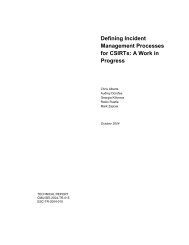The Global Innovation Index 2012
The Global Innovation Index 2012
The Global Innovation Index 2012
You also want an ePaper? Increase the reach of your titles
YUMPU automatically turns print PDFs into web optimized ePapers that Google loves.
cHApTEr 9<br />
Broadband, Inevitable <strong>Innovation</strong>, and Development<br />
roBert Shaw, ITu<br />
Bruno lanVin, INSEAD eLab; Broadband commission<br />
It is an interesting phenomenon that many<br />
inventions have been made two or more<br />
times by different inventors, each working<br />
without knowlede of the other’s research.<br />
—Ogburn and Thomas, 1922.<br />
Thus starts a delightful and fascinating<br />
1922 paper entitled ‘Are<br />
Inventions Inevitable? A Note<br />
on Social Evolution’, authored by<br />
William F. Ogburn and Dorothy<br />
Thomas.1 In the subsequent pages,<br />
the authors cite case after case of<br />
the world’s most significant inventions<br />
that appear to have emerged<br />
independently and almost simultaneously,<br />
sometimes on completely<br />
different sides of the world. In the<br />
appendix, they offer a preliminary<br />
list of 148 such cases chosen from<br />
the fields of mathematics, astronomy,<br />
chemistry, physics, medicine,<br />
biology, psychology, and mechanics.<br />
And they assert that there are surely<br />
many more examples that could be<br />
found with additional research.<br />
On the basis of this evidence,<br />
the authors ask the obvious question:<br />
‘What does this mean?’ <strong>The</strong>y<br />
seek to develop tentative answers to<br />
the question of whether inventions<br />
are inevitable. <strong>The</strong>y begin with a<br />
simple rhetorical question: if certain<br />
inventors had died in infancy,<br />
would somebody else not have<br />
shortly invented the same thing and<br />
overall human progress continued?<br />
<strong>The</strong>ir conclusion is, of course, ‘Yes’.<br />
In other words, the numerous parallel<br />
occurrences of essentially the<br />
same invention suggest that it is not<br />
so much the genius of specific individuals<br />
that is important as the set<br />
of enabling knowledge and conditions<br />
at a period in time that enables<br />
an invention to emerge. To put it<br />
simply, nobody can invent the river<br />
steamboat without the prior invention<br />
of both boats and the steam<br />
engine. But once both exist, their<br />
combined emergence is not only<br />
likely, but also simply inevitable.<br />
A more recent and powerful<br />
example can be cited for the<br />
invention of the worldwide web.<br />
Dave Raggett of the World Wide<br />
Consortium, in his description of<br />
the history of the invention of the<br />
Web by Sir Tim Berners-Lee, starts<br />
with the observation: ‘<strong>The</strong> time was<br />
ripe for Tim’s invention’.2 He states:<br />
<strong>The</strong> fact that the Web was invented in<br />
the early 1990s was no coincidence.<br />
Developments in communications<br />
technology during that time meant that,<br />
sooner or later, something like the Web was<br />
bound to happen. For a start, hypertext<br />
was coming into vogue and being used on<br />
computers. Also, Internet users were gaining<br />
in the number of users on the system: there<br />
was an increasing audience for distributed<br />
information. Last, but not least, the new<br />
domain name system had made it much<br />
easier to address a machine on the Internet.<br />
Indeed, with hindsight, most<br />
innovations can be qualified as<br />
inevitable. Rare is the disruptive<br />
breakthrough that comes out of<br />
nowhere—most are incremental<br />
changes built on the underpinnings<br />
of other knowledge, technologies,<br />
or platforms. What is important for<br />
most innovations to occur is a set<br />
of enabling conditions that triggers<br />
somebody with the right knowledge<br />
149<br />
THE GLOBAL INNOVATION INDEX <strong>2012</strong> 9: Broadband, Inevitable <strong>Innovation</strong>, and Development






